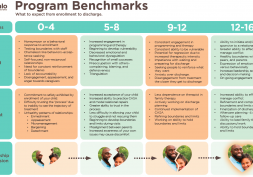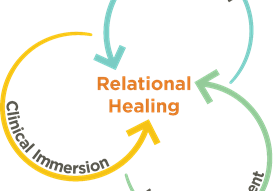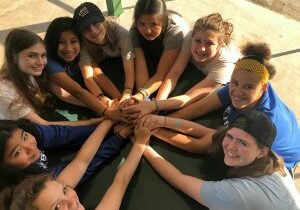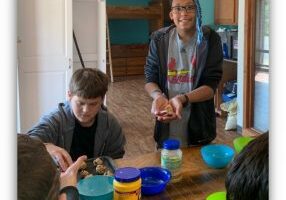“Cooking with kids is not just about ingredients, recipes, and cooking. It’s about harnessing imagination, empowerment, and creativity” – Guy Fieri
The smell of cookies baking in the oven, the texture of bread dough as it is kneaded, the spicy taste of a hot salsa – these are all simple examples of the sensory stimuli involved in cooking and its ability to provide a mindful focus to the present moment. Add in the psychosocial benefits of the shared experience, sense of accomplishment and mastery of new skills, and self-care through nourishing foods, and it is easy to see how cooking and baking can promote wellbeing and mental health. Whether cooking is done as an activity of daily living, for special holiday traditions, as a profession, or as a form of play, cooking is an “occupation” that we all engage in and were often introduced to during childhood or adolescence. In occupational therapy (OT), these activities that individuals need or want to do throughout the day, such as cooking, are used as intervention approaches to develop sensorimotor skills, executive functioning skills, social skills, and to help the body regulate.
At Calo, preteen students participate in a weekly play-based OT group. About once a month, the focus of the group is basic culinary and baking skills, which students frequently refer to as “food group.” Popular food groups in OT over the past several months have included making guacamole and salsa, baking vegan chocolate chip cookies, blending fruit smoothies, mixing homemade ice cream, and enjoying outdoor picnics.

Cooking in OT has helped students to integrate motor and bilateral coordination skills through writing a recipe, measuring ingredients, chopping fruits and vegetables, and mixing. Students with tactile sensitivities experience the textures of ingredients and finished products through their hands in a safe environment. Students utilize higher-level skills of being able to organize the cooking space to prepare, sequence multiple steps in a recipe, and problem solve when difficulties arise. Students work with team members to accomplish tasks together. Students learn to manage frustrations and develop a positive sense of self as they grow in cooking skills. In addition, students grow in knowledge of etiquette, basic kitchen and food safety, and nutrition. The most amazing thing to watch in the process of food groups is the sense of pride as students look at their finished product knowing that they created it with their own hands.
We love hearing students excitedly tell us stories of cooking they did while on off-campus visits with family, or their creative ideas for future food groups. Cooking can be a powerful tool for relational engagement and playfulness. We look forward to sharing future cooking experiences in OT with our budding chefs. Cooking is one of the many activities used in OT to promote a student’s ability to engage in their daily routines and occupations and adds another fun element to Calo’s holistic treatment approach.
“Man, through the use of his hands, as they are energized by mind and will, can influence the state of his own health.” – Mary Reilly







